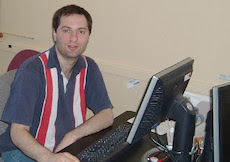Episode Description
Pain is often under-diagnosed and under-treated among older adults, especially those with dementia, who have trouble communicating their discomfort. Additionally, approximately 60 per cent of older adults with dementia suffer a fall each year. Dr. Babak Taati is among a group of researchers in Canada aiming to tackle these problems using computer vision and artificial intelligence (AI).
In this episode of Behind the Breakthrough, we learn how Dr. Taati's work involves using ambient monitoring systems to assess and analyze the movement and facial expressions of older adults to detect signs of pain and predict the likelihood of future falls, all while they go about their daily lives. He also discusses the ethical considerations of ambient monitoring techniques, from privacy concerns to working to eliminate ageism and ableism in the technology used.
Dr. Taati also shares his somewhat non-linear path to a career in medical research via engineering and robotics, and the value of a transdisciplinary approach to research, working with scientists and clinicians from various backgrounds and experiences.
About Dr. Babak Taati

Dr. Babak Taati is a Scientist at the Kite Research Institute, the research arm of the Toronto Rehabilitation Institute at UHN. He also holds an Assistant Professor status in the Department of Computer Science and the Institute of Biomedical Engineering at the University of Toronto. Dr. Taati obtained his B.Sc. in Electrical and Control Engineering from Sharif University of Technology in Tehran, Iran. He earned his M.A.Sc. in Engineering Science from Simon Fraser University in B.C. before completing his Ph.D. in Computer Vision at Queen's University in Ontario. Dr. Taati's research focuses on the applications of computer vision in health monitoring and rehabilitation technologies and the development of computer vision systems that work reliably in settings beyond the lab, such as in the home or in long-term care.
Dr. Taati's work is supported by an AMS Healthcare Fellowship in Compassion and Artificial Intelligence and by research grants from the CIHR, NSERC, AGE-WELL, Parkinson Canada, ALS Canada, NIH, Michael J. Fox Foundation & Weston Brain Institute, Canadian Partnership for Stroke Recover, Alzheimer’s Association & Brain Canada Foundation, Walter and Maria Schroeder Institute for Brain Innovation and Recovery, University of Toronto, and KITE-UHN.
Want to learn more about Dr. Taati and his work?
Produced By: Maria Madden |
Host: Christian Cote |
Audio Editing and Mixing: 217 Audio
